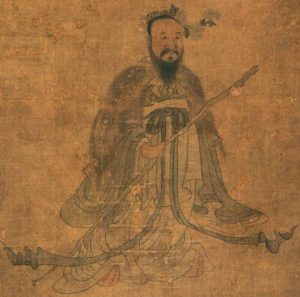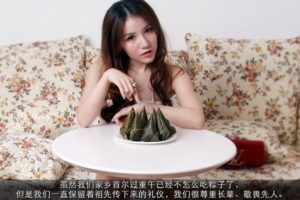 Thursday, June 25th, is the fifth day of the fifth month of the Chinese lunar calendar, when much of East Asia celebrates the Dragon Boat Festival. Dragon-boating has become popular across much of the world, with competitions taking place year-round. Hong Kong alone has hundreds of teams, including collegiate squads, hobbyists and company-sponsored platoons. The biggest fish mongers or seafood restaurants tend to dominate, possibly thanks to their sly recruitment of steroidal Mainland jocks. Naturally the main event is on “Double 5th,” when every district in the city will normally host at least one waterfront competition. For obvious reasons this year’s races have been canceled, but some are still doing “virtual” races (however that is supposed to work).
Thursday, June 25th, is the fifth day of the fifth month of the Chinese lunar calendar, when much of East Asia celebrates the Dragon Boat Festival. Dragon-boating has become popular across much of the world, with competitions taking place year-round. Hong Kong alone has hundreds of teams, including collegiate squads, hobbyists and company-sponsored platoons. The biggest fish mongers or seafood restaurants tend to dominate, possibly thanks to their sly recruitment of steroidal Mainland jocks. Naturally the main event is on “Double 5th,” when every district in the city will normally host at least one waterfront competition. For obvious reasons this year’s races have been canceled, but some are still doing “virtual” races (however that is supposed to work).

Despite its commercialization and appropriation by white devils, Tuen Ng (Duanwujie for you Northerners) has Chinese religious roots. There are several competing origin stories based on semi-historical figures, but the most popular myth is about an unlucky poet and official of the ancient State of Chu (ca. a very long time ago) named Qu Yuan. Qu had the misfortune of being opposed to Qin, the ascendant power in pre-imperial China. He was banished from his post when Chu allied itself with Qin, but eventually Qin simply conquered Chu (and the rest of China by 221 BCE). Legend has it that a despairing Qu drowned himself in a river, but despite falling out of favor Qu was still loved and respected by many, and so the locals raced out in their boats to try and save him. Unfortunately they were too late, so instead they dropped balls of rice that the fish would eat instead of his body. Today’s races memorialize the desperate attempt to save Qu, and the balls of rice are said to be the origin of the famous Chinese rice dumplings called zongzi.
As with much of Chinese religious tradition, it’s likely that these legends have been superimposed onto earlier beliefs and practices. The fifth month of the year has always been a rather inauspicious time spiritually-speaking, and since ancient times certain rituals have been used to ward off bad luck and mischievous spirits. Tuen Ng is also possibly related to dragon worship, hence the boats’ dragon-headed bows and colorful livery. Buddhas excepting, in Chinese religion there is no more auspicious or powerful an animate force than a dragon.
However, the most interesting part of the festival’s history is actually quite recent, as we Chinese very nearly lost this part of our cultural heritage to our duplicitous Korean cousins! The controversy began when South Korea considered internationally registering the holiday as part of their cultural heritage in the mid-aughts. Now it is certainly true that the festival has been a cherished part of Korean culture since it spread from China centuries ago. However, the problem was that much of the Chinese-speaking world had forgotten about it; the PRC – our esteemed representative on the world stage – had basically ignored the tradition. About to be preempted, the Party panicked and rushed to revive the holiday so that China, not Korea or (worse) CHINESE TAIPEI, could claim the festival with UNESCO. We mustn’t blame the Koreans for our own neglect, but they could certainly be less annoying about it. The controversy even led to one of the first great online inter-Asian conflicts with “Zongzi Gate,” when a Korean social media hussy had the gall to educate us on the rules of consuming glutinous rice. No way in dei juk could we let that slide.

